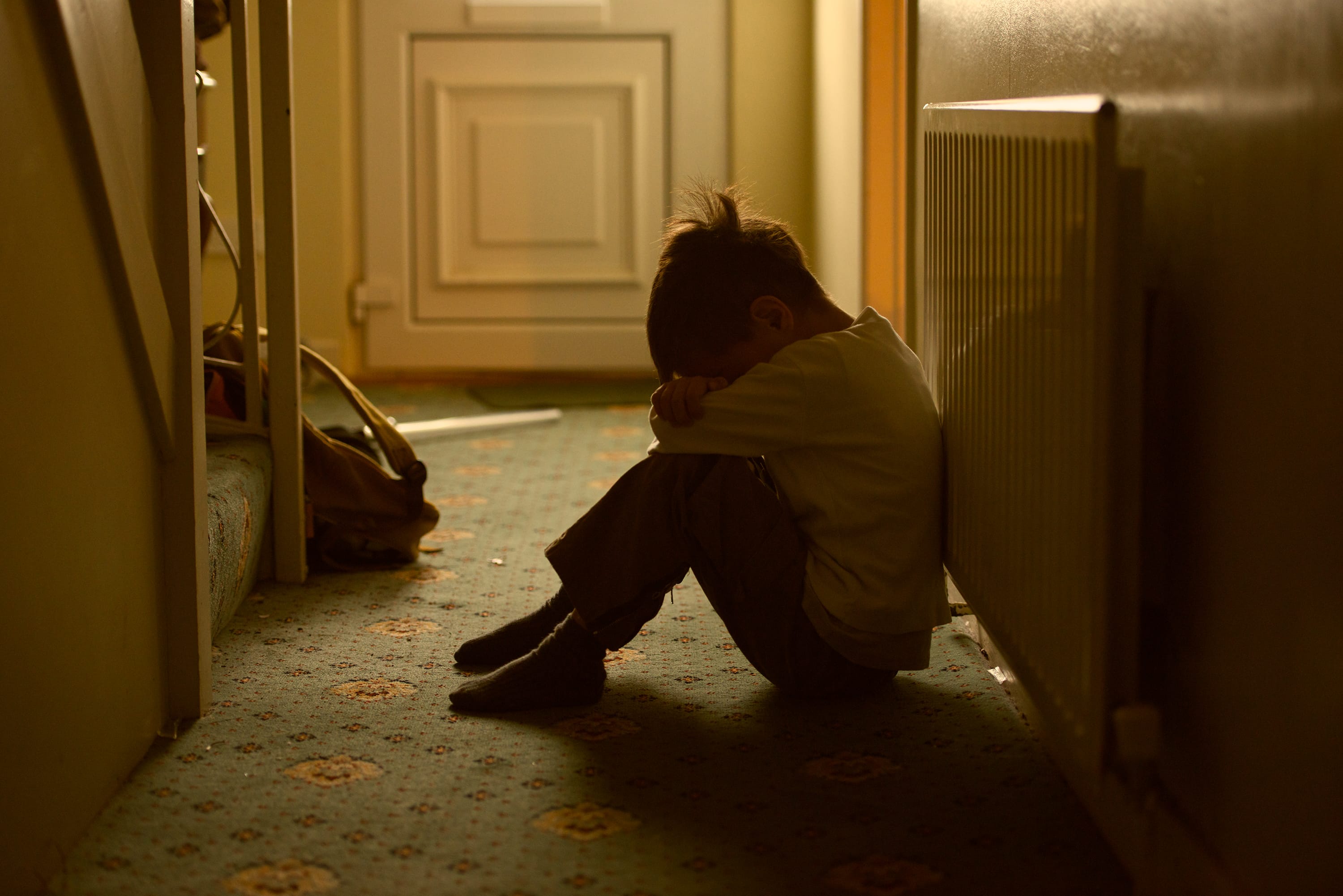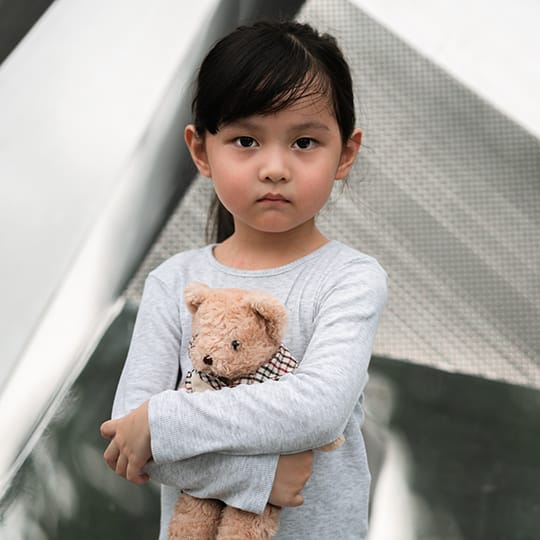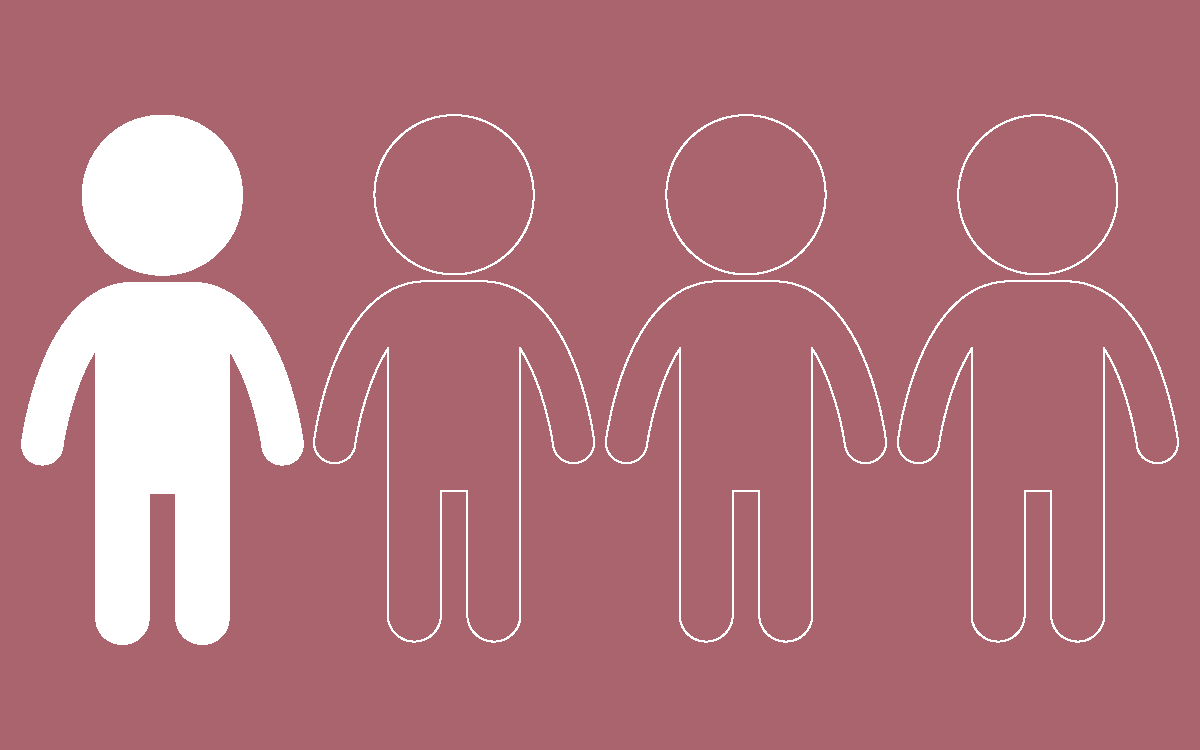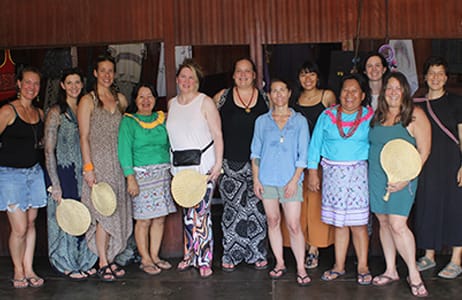Impact on children & families
Military trauma leads to childhood trauma at every age.

Overall, about 39% of U.S. soldiers have children. Children are just as susceptible to secondary trauma as veteran spouses and partners are, even if they’re unaware or too young to understand what their parents are going through. Many studies have established that, in comparison with children of parents who don’t have PTSD, the children of one or more parents with PTSD have more frequent and more serious developmental, behavioral, and emotional problems.
Violence and conflict
Conflict is much more common in military households affected by PTSD than when PTSD isn’t a factor.
Up to 60% of military families experiencing domestic violence also report experiencing child maltreatment or child violence.
Since 2003, military families have had higher rates of child maltreatment than civilian families, due to increasing rates of PTSD.
How combat trauma hurts children

VIOLENCE:
30-60% report child violence and maltreatment

ACTING OUT:
Bedwetting, night terrors, delinquency, substance abuse

SUICIDE:
1 in 4 military children have attempted or considered.
Children of parents with PTSD are statistically more likely to experience developmental and behavioral issues such as:
- Feeding difficulties
- Bed-wetting
- Night terrors
- Speech disorders
- Difficulty starting school or daycare
- Poor relationships with peers
- Learning problems
- Leaving school
- Aggressive behavior
- Alcohol abuse
- Drug abuse
- Delinquency
- Difficulty establishing emotional ties
- Depression
Suicide

In a 2022 study conducted in a California High School, nearly one in four military children had considered suicide or attempted suicide.
This is a rate 10% higher than the civilian population at the same school.
Not just your children. Your children’s children.
Combat PTSD can last for generations.
The latest research has shown that a veteran can inadvertently pass their PTSD or related emotional problems onto their children behaviorally, genetically, or epigenetically. It can even affect their grandchildren and beyond.

You and your spouse can break the cycle. We can help.

You can break the cycle of trauma and conflict by addressing your own PTSD. By doing so, you’ll prevent a lifetime of unnecessary suffering for your children and grandchildren. The Hope Project offers psychedelic retreat programs, group support, professional coaching, and education to aid you in this process, and our parent organization, Heroic Hearts Project can help your veteran loved one.



